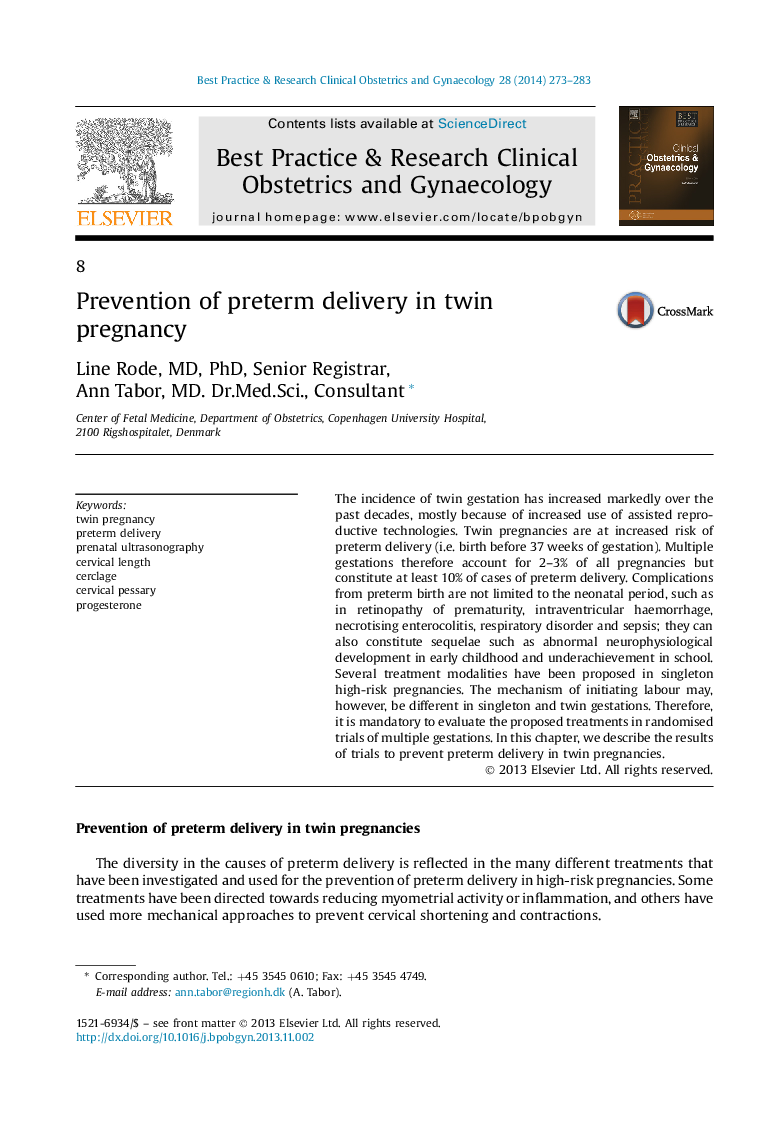| Article ID | Journal | Published Year | Pages | File Type |
|---|---|---|---|---|
| 3907446 | Best Practice & Research Clinical Obstetrics & Gynaecology | 2014 | 11 Pages |
•Progesterone does not reduce the rate of preterm delivery in unselected twin cohorts.•Progesterone may prevent preterm delivery in women with twin pregnancy and short cervix.•Cerclage should not be used in the prevention of preterm delivery in twin pregnancy.
The incidence of twin gestation has increased markedly over the past decades, mostly because of increased use of assisted reproductive technologies. Twin pregnancies are at increased risk of preterm delivery (i.e. birth before 37 weeks of gestation). Multiple gestations therefore account for 2–3% of all pregnancies but constitute at least 10% of cases of preterm delivery. Complications from preterm birth are not limited to the neonatal period, such as in retinopathy of prematurity, intraventricular haemorrhage, necrotising enterocolitis, respiratory disorder and sepsis; they can also constitute sequelae such as abnormal neurophysiological development in early childhood and underachievement in school. Several treatment modalities have been proposed in singleton high-risk pregnancies. The mechanism of initiating labour may, however, be different in singleton and twin gestations. Therefore, it is mandatory to evaluate the proposed treatments in randomised trials of multiple gestations. In this chapter, we describe the results of trials to prevent preterm delivery in twin pregnancies.
